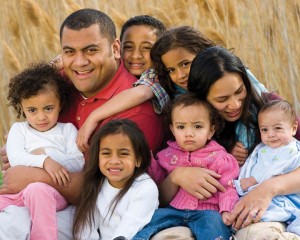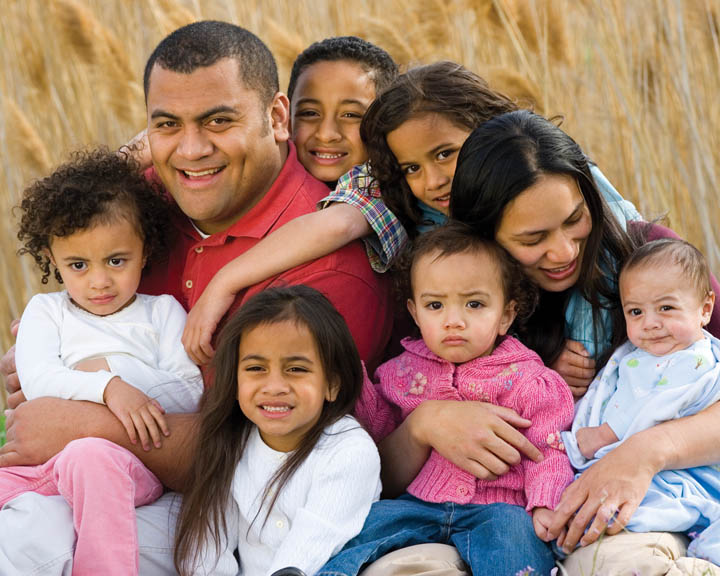One day my husband asked our energetic four-year-old daughter, “Are you a peacemaker or a troublemaker?” She paused, then decisively pronounced, “I’m a piece of trouble!”
In a world full of pieces of trouble and conflict at every turn, we are challenged to teach our children differently. We have the obligation as parents to teach peace. If we fail to teach peace in the home, it is unlikely that our children will learn the principles of peace in the world.
 We have daily opportunity to teach peace. Who gets the bigger cookie? How will chores be fairly divided? What should you do when brother hits? What if sister borrows your shoes without permission or brother breaks your best toy? From toddler to teenager, we have small but frequent opportunities in the home to teach peace. Knowing peace brings joy and happiness. “Blessed are the peacemakers: for they shall be called the children of God.” (Matthew 5:9)
We have daily opportunity to teach peace. Who gets the bigger cookie? How will chores be fairly divided? What should you do when brother hits? What if sister borrows your shoes without permission or brother breaks your best toy? From toddler to teenager, we have small but frequent opportunities in the home to teach peace. Knowing peace brings joy and happiness. “Blessed are the peacemakers: for they shall be called the children of God.” (Matthew 5:9)
Much contention comes from the fact that each of us has free will. It is not in simply having the will that is the problem, but the wise or poor use of it. Choices that stem from selfishness have bad consequences for the child and usually for the entire family. Wise choices based on love and understanding for others bring peace.
The gospel of Jesus Christ is the foundation for these wise choices. In the midst of World War I, President of the Church of Jesus Christ of Latter-Day Saints, Joseph F. Smith declared:
“There is only one thing that can bring peace into the world. It is the adoption of the gospel of Jesus Christ, rightly understood, obeyed and practiced by rulers and people alike.” (Improvement Era, Sept. 1914, pp. 1074–75.)
His life and His words give us instructions of teaching peace to our children.
First, pray for peace. We need help beyond our own abilities in a world full of conflict. When we pray both individually and as a family for peace and for one another, we can foster greater understanding and greater love for each other.
Second, learn of peace. The life of the Savior, the Prince of Peace, can effectively teach us. He understood perfectly the need for all of us to have free will, or agency. He fully respected this greatest gift of choice. His life, filled with patience and self-mastery, showed us how we should be and keeps the standard for our behavior high. He commanded us to obey but invites us to choose and does not employ force when teaching gospel truths. His own obedience to the will of the Father shows us we should strive to keep His commandments. His willingness to forgive others and his encouragement of repentance shows us what to do when we make mistakes.
Third, listen for peace. In the book of the Doctrine and Covenants, revelation received by the prophet Joseph Smith, we learn to listen to the Holy Ghost.
“…and you shall receive my Spirit, the Holy Ghost, even the Comforter, which shall teach you the peaceable things of the kingdom.” (D&C 36:2)
Listening to one another also promotes peace. When we begin to have learning conversations with family members instead of blaming or accusing conversations, we can clear up misunderstandings, understand true intentions and show greater love.
Fourth, practice peace. In our families, we have daily opportunity to practice peace. We can teach our children to serve one another and to love one another. Peace is found where righteousness and concern for others comes first. Also found in the Doctrine and Covenants is this counsel:
“But learn that he who doeth the works of righteousness shall receive his reward, even peace in this world, and eternal life in the world to come.” (D&C 59:23)
As parents, we can teach our children to follow the Savior Jesus Christ. Dallin H. Oaks, LDS church leader and apostle, noted in an address entitled World Peace:
The Savior and his Apostles had no program for world peace other than individual righteousness. They mounted no opposition to the rule of Rome or to the regime of its local tyrants. They preached individual righteousness and taught that the children of God should love their enemies and “live peaceably with all men.”
May our children gain the everyday help of mothers and fathers in the quest for peace.


